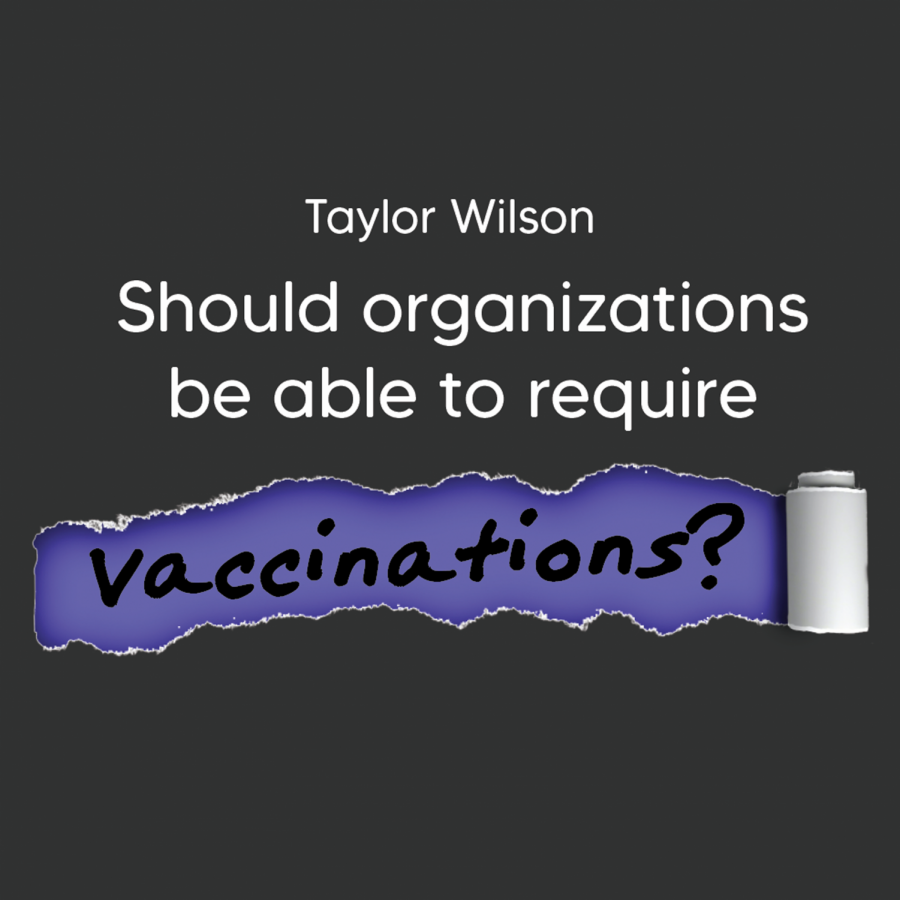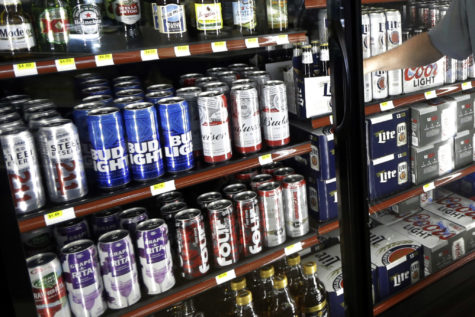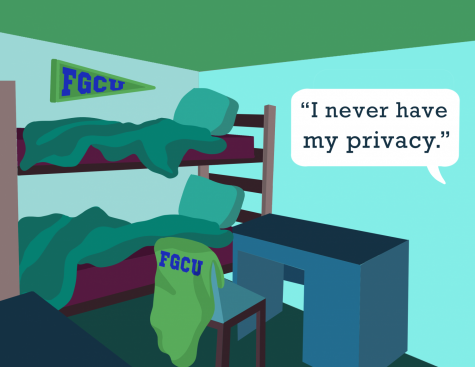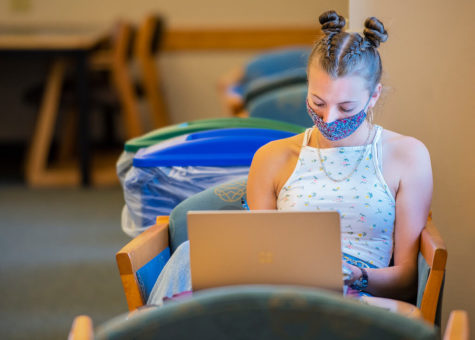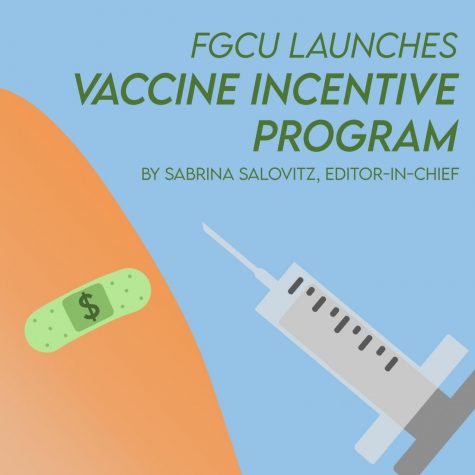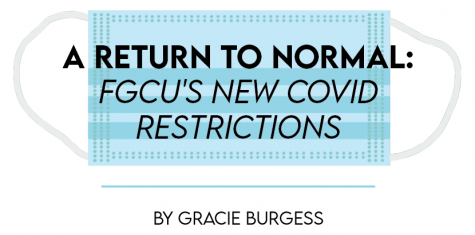Should Organizations be Able to Require Vaccination?
August 25, 2021
As a transfer student to FGCU, this will be my first semester where the majority of my classes are on campus and in-person. I feel like a freshman just starting out, but the lingering effects of coronavirus do make me worry. FGCU will not be requiring masks, but there is the possibility that public areas like restaurants, gyms and other businesses will reinstate COVID-19 policies. The question that follows these developments: should these spots be able to require vaccination for entry?
COVID-19 has been a hot issue in the United States and throughout the world for over a year now and the Delta variant is now threatening to bring us back to the days of working from home, taking the dog on extra walks and baking lots of homemade bread.
According to the Centers for Disease Control and Prevention, the Delta variant has been found in the United States and it is said to be more contagious, with a faster rate of spreading. Those who are unvaccinated are at a greater risk of severe illness and fatality, but those who have received a vaccine are still at risk of infection and can spread COVID-19 with the Delta variant.
Vaccinations are one of the best options to protect against getting and spreading COVID-19, but there are many who have decided not to receive the shot(s) for medical, religious and other reasons. According to the CDC, only about 49% of Floridians are fully vaccinated.
“The University urges everyone to get vaccinated against the COVID-19 virus, but it remains a personal decision for students and employees,” Pam McCabe, FGCU’s Communication and Media Relations Coordinator said. “Fully vaccinated individuals are less likely to face serious illness due to COVID or risk longer quarantine times due to exposure.”
Despite reassurances from the CDC and other health organizations, the COVID-19 vaccines are an object of controversy. Kacey Terry is a senior majoring in political science at FGCU, and she has concerns about the vaccine. Terry has yet to be vaccinated and does not believe that it should be a requirement in highly populated areas.
“No one should be forced to put something in their bodies that they are not comfortable with,” Terry said. “It is important to create herd immunity but until the vaccine can be proven to do this, as well as be proven to be effective as well as safe, I do not think it should be required.”
The major concern Terry has is her mistrust of the speedy rollout of the vaccines and her doubts regarding their overall safety and effectiveness.
Dr. Cindy Farris, Assistant Professor at FGCU’s School of Nursing, received the Moderna vaccine, and she believes in its effectiveness and the research behind it. Farris explained that the CDC and FDA have both given emergency authorization to the shots and the components of these vaccines are not new. The mRNA vaccine has been around for 20 years, with the Ebola vaccine using that technology.
“My philosophy is that I look at mandatory vaccination as a primary prevention to prevent a disease and promote health,” Farris said. “Where would this country be if people refused to get the smallpox vaccination? We have eradicated that disease because of vaccinations.”
In early May, Florida Governor Ron DeSantis signed into legislation Senate Bill 2006, which bans vaccine passports and limits some local government powers during an emergency.
“In Florida, your personal choice regarding vaccinations will be protected and no business or government entity will be able to deny you services based on your decision,” DeSantis said in a press release about the bill.
While Farris does recognize that every state, city and community is experiencing the effects of COVID-19 differently, she spoke favorably of businesses requiring vaccinations.
“Businesses are responsible for the safety and health of their employees,” Farris said. “They need to know if their employees are safe, and data has now shown that areas with higher vaccination rates have lower cases, lower hospitalizations, and most importantly lower deaths.”
It is important for businesses to have healthy employees in order to stay open and requiring patrons and employees to be vaccinated would lower the risk infection. In the long run, businesses would be protecting themselves and their customers.
It makes sense for businesses to establish vaccine requirements for safety reasons, but a requirement would pose other issues. Employers are not allowed to require documentation of vaccination due to DeSantis’s Senate Bill 2006. Even so, if those requirements were allowed, would there be accommodations and exceptions made for those who have not received a vaccine for religious or medical reasons?
“If places are requiring the vaccine, I would simply go to a different one, out of respect for their wishes,” Terry said, but many would argue that this is a simplification of the issue. Businesses could risk alienating customers and losing staff, and there are those who will lie about their vaccination status, as well as the possibility of customers presenting fake vaccine cards.
“The problem now with vaccine documentation is that individuals have learned how to get fake ones,” Farris said. “I guess the underlying question is why can’t we ask about COVID but we can ask about other ones.”
In the United States, the aim is not to get every American vaccinated. The goal is to reach herd immunity, which would require around 70-90% of individuals receiving their shots.
So, the big question is, should the COVID vaccines be mandatory, as cases in Florida and around the U.S. have climbed in the past few months?
“Mandatory vaccinations have been around for many years,” Farris said. “We require certain vaccinations to attend school and our own School of Nursing requires certain ones (flu is mandatory yearly) because our community partners require it. I think what our country needs to focus on is the safety of our public. When there is a public health crisis (no matter what it is), safety of the public should trump an individual right.”
Vaccinations are a matter of choice for individuals, but they will allow the nation and individual communities to more readily overcome the effects of COVID-19. There are individuals who cannot receive the vaccine but reaching that 70-90% of vaccinations could change the game for the virus.
“Please consider doing your part for the good of our community, you have to get other vaccinations so why not COVID?” Farris asked. “Please also continue social distancing, wear masks and wash your hands. Vaccinated individuals can still get COVID but data shows that hospitalizations with major complications are lower and death is very low. Please don’t take the chance of interrupting your participation in class and your career goals. Just think about being part of the greater good!”
































